Power to the Youth
Youth deserve legitimate chances to impact legislation and national policy to improve our future.
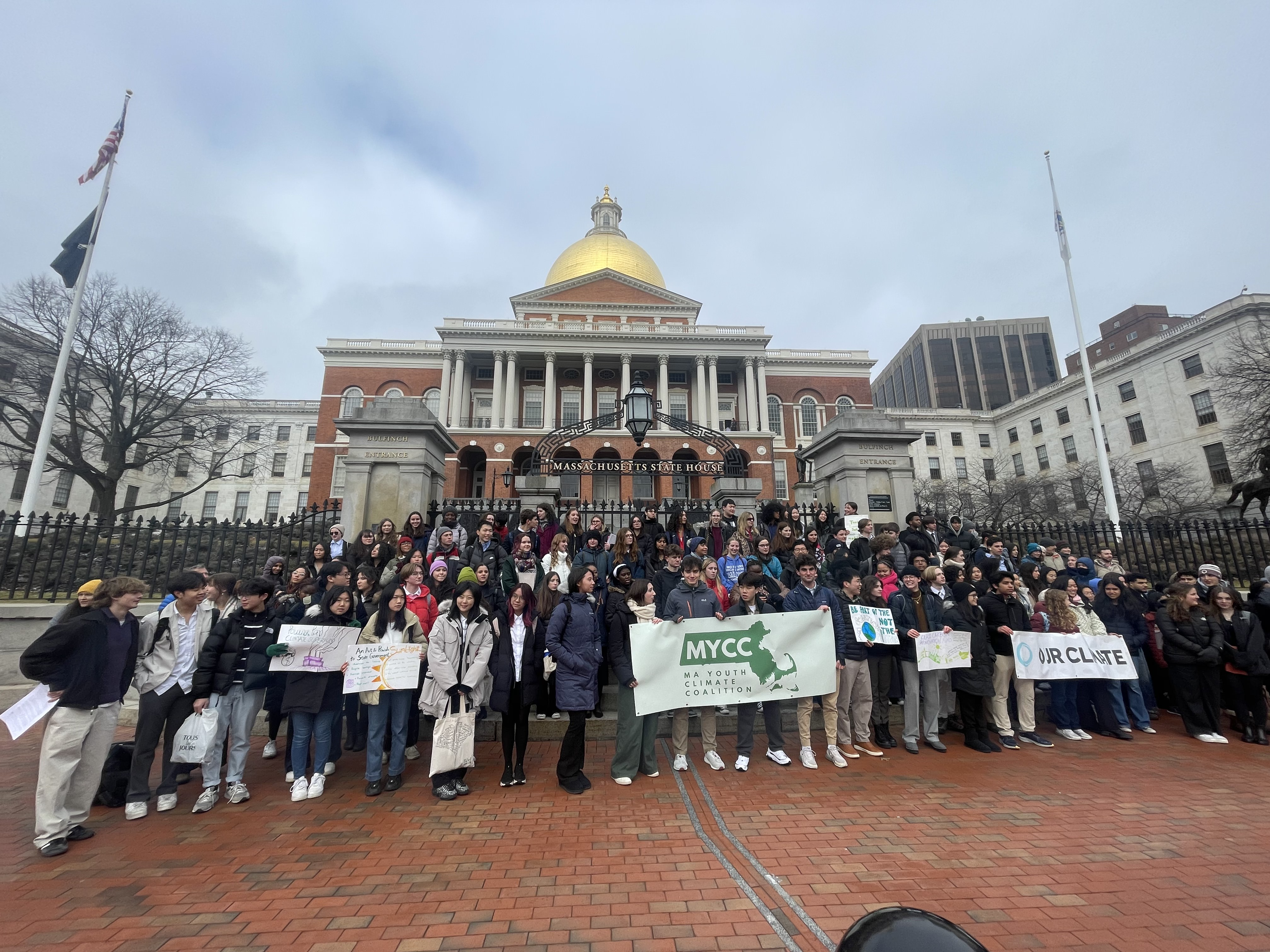
The latest news surrounding climate change seems to be doom and gloom, with no end in sight. Desert cities shut down due to catastrophic floods, destructive tornadoes sweep across the nation, and unbearable heat continues year-round throughout the globe.
Record temperatures soared in April, breaking records for the eleventh month, and an even warmer summer is on tap. Furthermore, the planet experienced its first period of over 1.5°C since the Industrial Revolution last year. Experts from the IPCC continue to implore immediate action to curb fossil fuels, forewarning that we may eclipse 2.5°C by 2100.
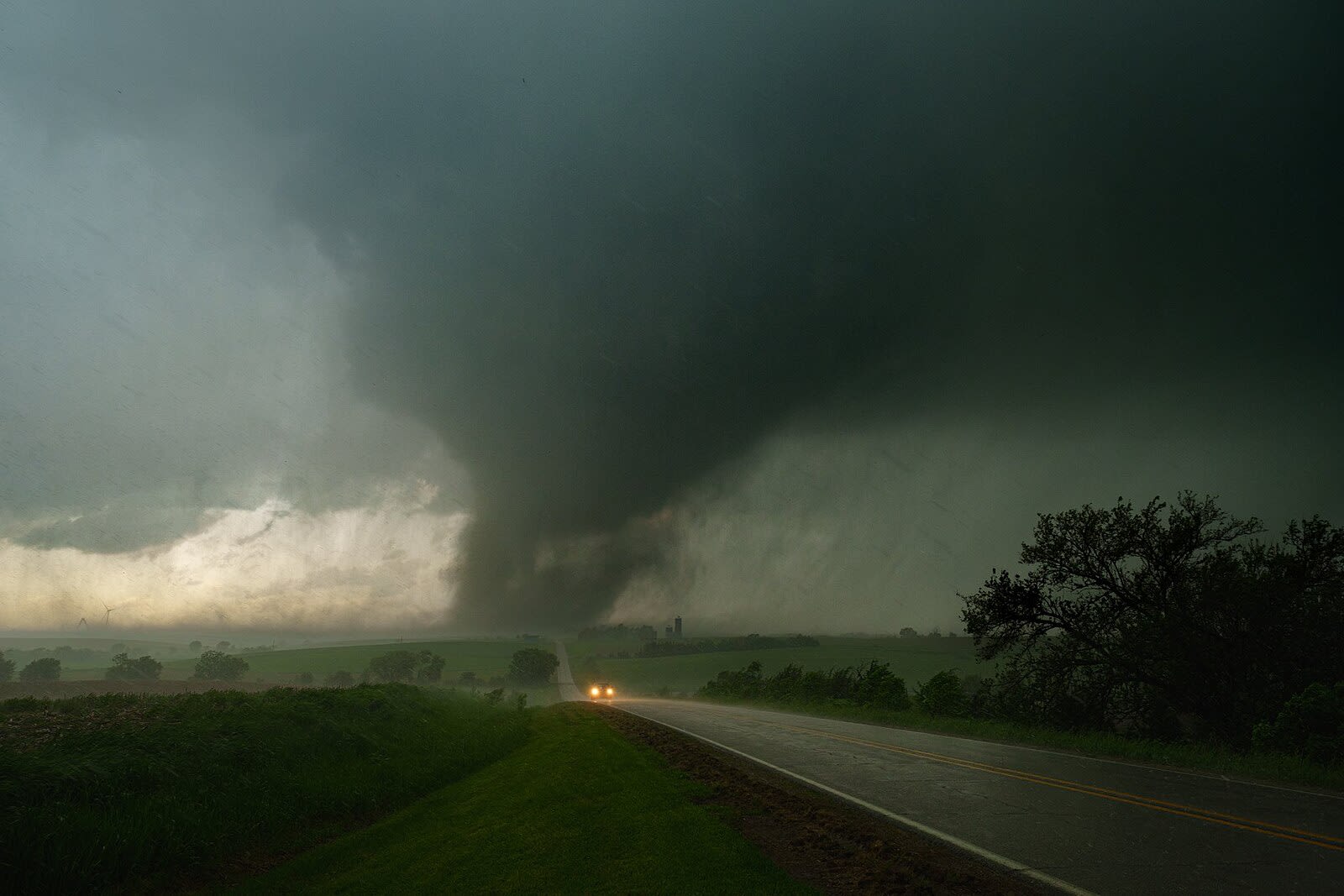
We live in an age where each measure we take can preserve millions of lives. Despite this, leaders neglect the impacts of climate change and sometimes will deny the phenomenon altogether.
In an era of immense industrialization and greed, the fatal passivity on climate action from elected officials cannot continue. Our lawmakers display abhorrent behavior, legislating based on assets and fame rather than welfare for the country. Instead of fulfilling their oaths of office, these avaricious politicians leave their constituents and fellow Americans in the dust.
Instead of fulfilling their oaths of office, these avaricious politicians leave their constituents and fellow Americans in the dust.
For example, Florida Governor Ron DeSantis recently approved a bill downgrading climate change's priority status while extracting environmental language from state laws. According to NPR, the regulation emphasized fossil fuel production and prohibited offshore wind farms. Moreover, the statute calls to eliminate turbines near the state's coastline.
There must be a force holding these selfish legislators accountable.
Enter the youth.
Frustratingly, my future is in the balance of our leader's decisions. It is infuriating to watch Congress tediously argue my future in endless debates. None consult those who are the most impacted–teenagers.
Frankly, it is contradictory that Republicans say they value civic education while disenfranchising and depriving youth of any chance of political engagement.
It is imperative that politicians remember who will inherit the world. The next generations. We will take the brunt of the crisis and must live with the consequences of the past generation's poor and greedy choices.
Several youth activist organizations understand this fraught outcome and spend hours a week to ensure a safer world for all in the future.
One such coalition is The Massachusetts Youth Climate Coalition (MYCC). MYCC is a youth-led movement that hosts several organizations in the state aiming toward the same future–a livable one for all.
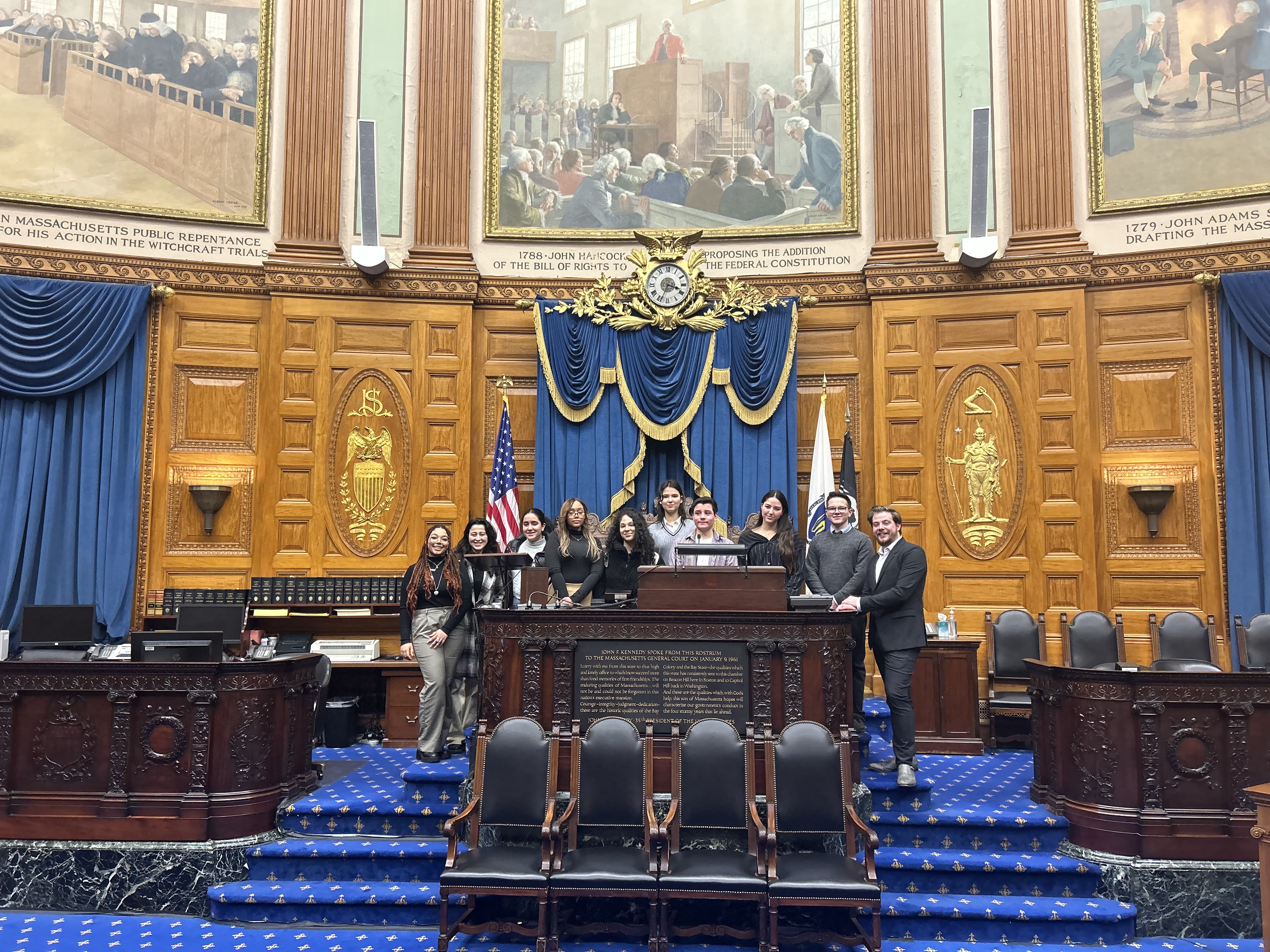
Case Study: Lobby Week
Andrea Tang '24, Newton South
In January, MYCC hosted a lobby week designed to advocate for the coalition’s top priorities through rallies and meetings with legislators on Beacon Hill. Through this experience, I learned about the political process and gathered insight from our collaboration.
First, the free time we had to be with each other helped me connect with other people interested in climate action. We were able to bond together over the most random things and I made new friends going to Dunkin' between legislator meetings and exploring the State House.
Overall, the unstructured time was rewarding for me and I'm happy we had such strong organization when it came to prepping for our legislator meetings–it made speaking on the spot a lot easier. I'm glad I got to meet so many other young people passionate about climate action and felt that MYCC gave me a sense of unity with my peers, as well as hope for our future.
Some key things I learned were organizational and time-management skills leading up to lobby week. I learned so much about climate legislation currently on the table and workings of the political system.
In particular, I enjoyed learning about the Interdisciplinary Climate Justice Education Bill, as this is a topic I have been interested in and curious about for a long time. What will stick with me the most will probably be the MYCC community. I felt so supported going into my first in-person lobby meetings and met amazing people!
One of the staff members we met recommended reaching out to the appropriate committee chairs to push forward our major bills.
In the future, it would be interesting to hear of future opportunities to get involved in the Massachusetts government directly and work together with legislators to address climate change.
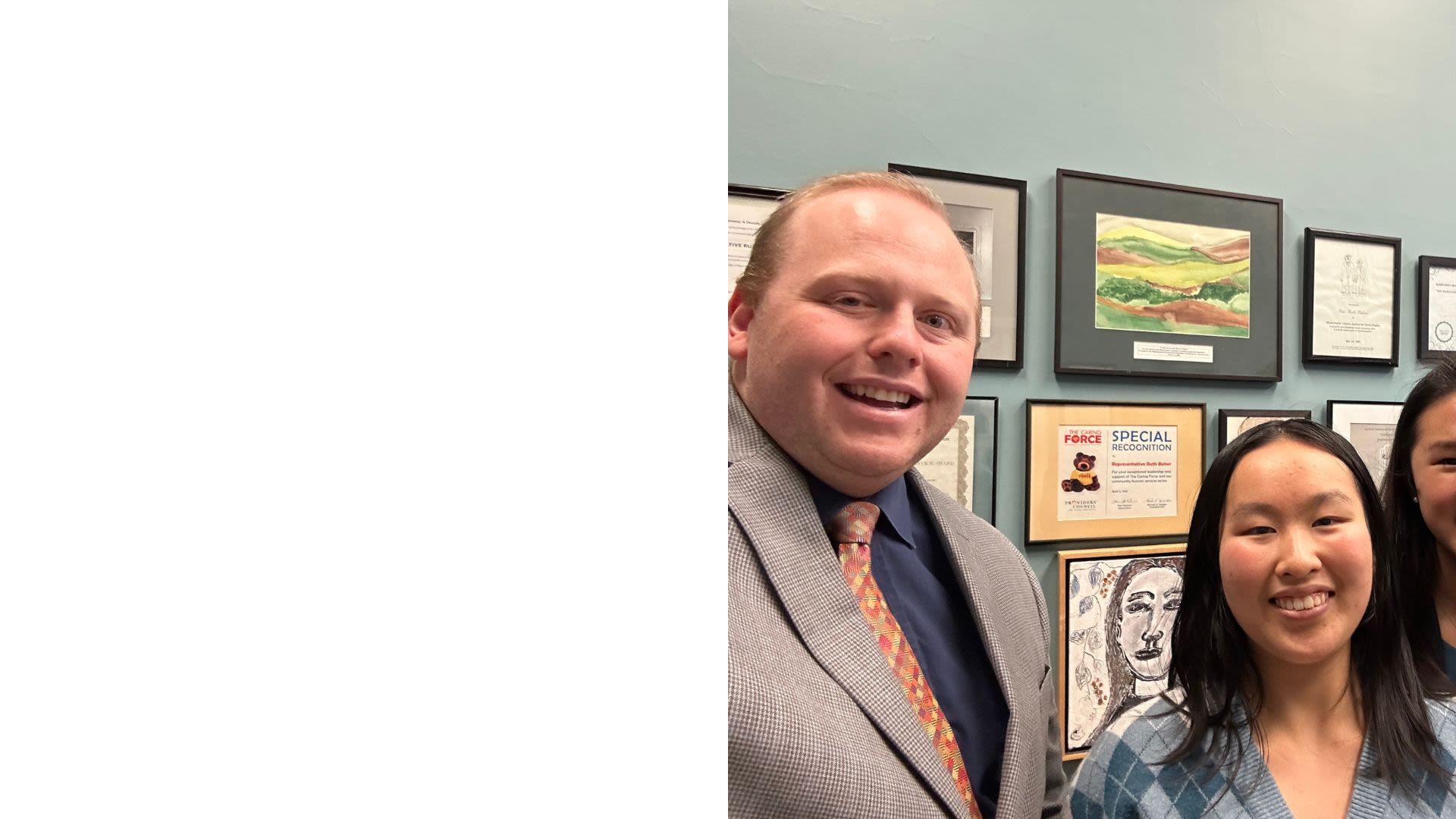
Among MYCC, organizations are frustrated with the lack of movement on climate legislation in local and state dockets.
Jonathan Lan, a senior at Weston High School and a field representative with Our Climate, finds activism a method to wake up legislators and include youth in decisions.
"I think historically, youth are sort of a voice that are not represented by our legislators," Lan said. "Youth can't even vote for their representatives. So how else do we really get our voice out there, especially when climate change is such a pressing issue for our generation and our demographic?"
Sebastian Lemberger, a junior at Phillips Andover and intern for Our Climate, believes that youth activism is crucial due to the sluggish pace of our legislators and the pressing need for climate action now.
"The reason why I think youth activism is so important is because young people tend to be way more radical and progressive, and they tend to have big new ideas about things that normally wouldn't take hold in a governing institution," Lemberger said. "And because young people have this kind of outsider perspective that causes them to be more radical, their participation in government is really, really important because young people are kind of the thing that should be pushing governments to do better and make more progress and be more ambitious with what they're trying to do. Because if you leave them alone, they're not going to do anything."
"Because if you leave them [governments] alone, they're not going to do anything"
MYCC's signature policy is the youth-written Interdisciplinary Climate Justice Education Bill. The bill promotes a comprehensive climate curriculum, proper spending for educational matters, and a council consisting of faculty members, professionals, and youth. The council's purpose is to allocate funds and set the curriculum.
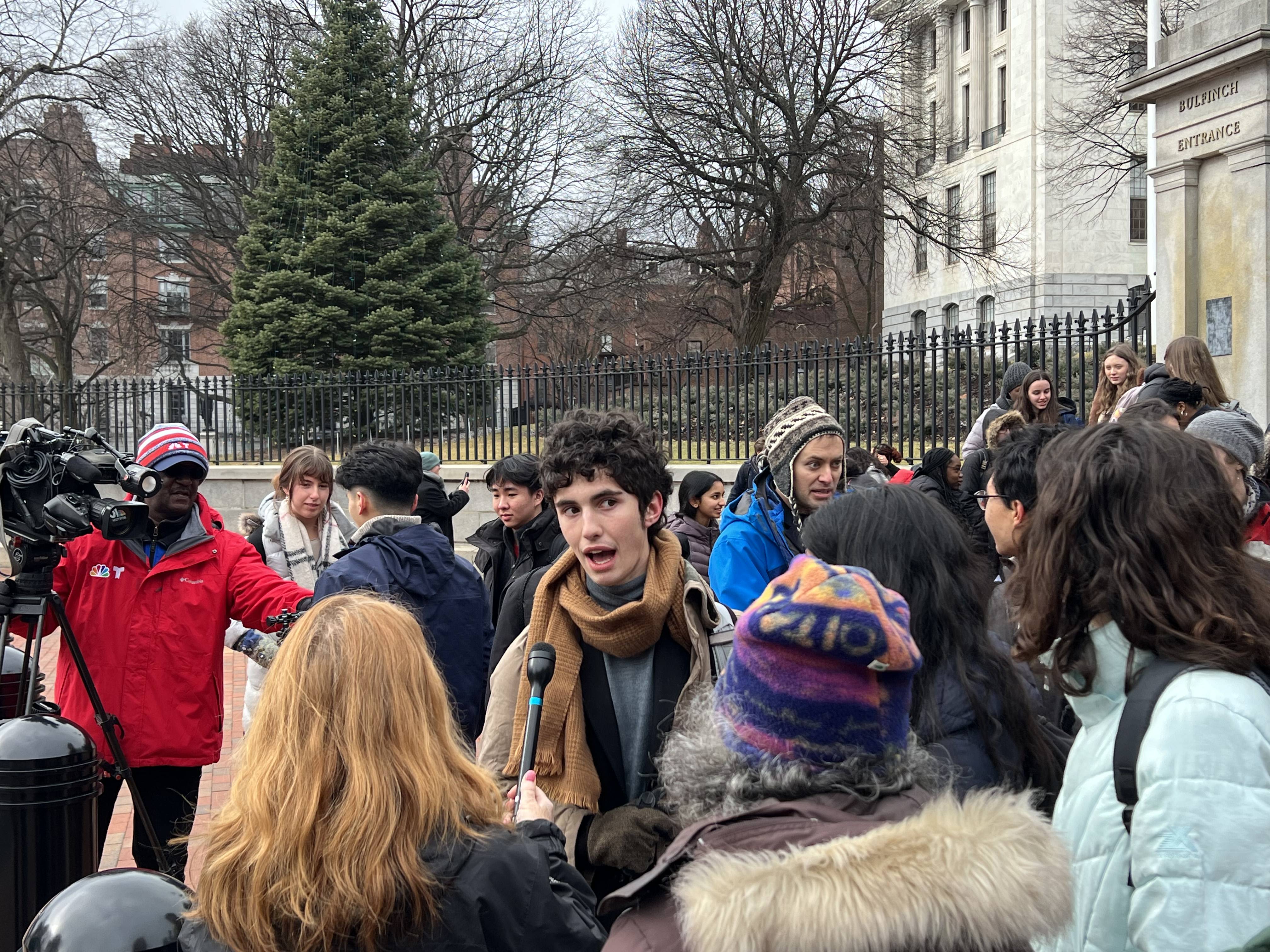
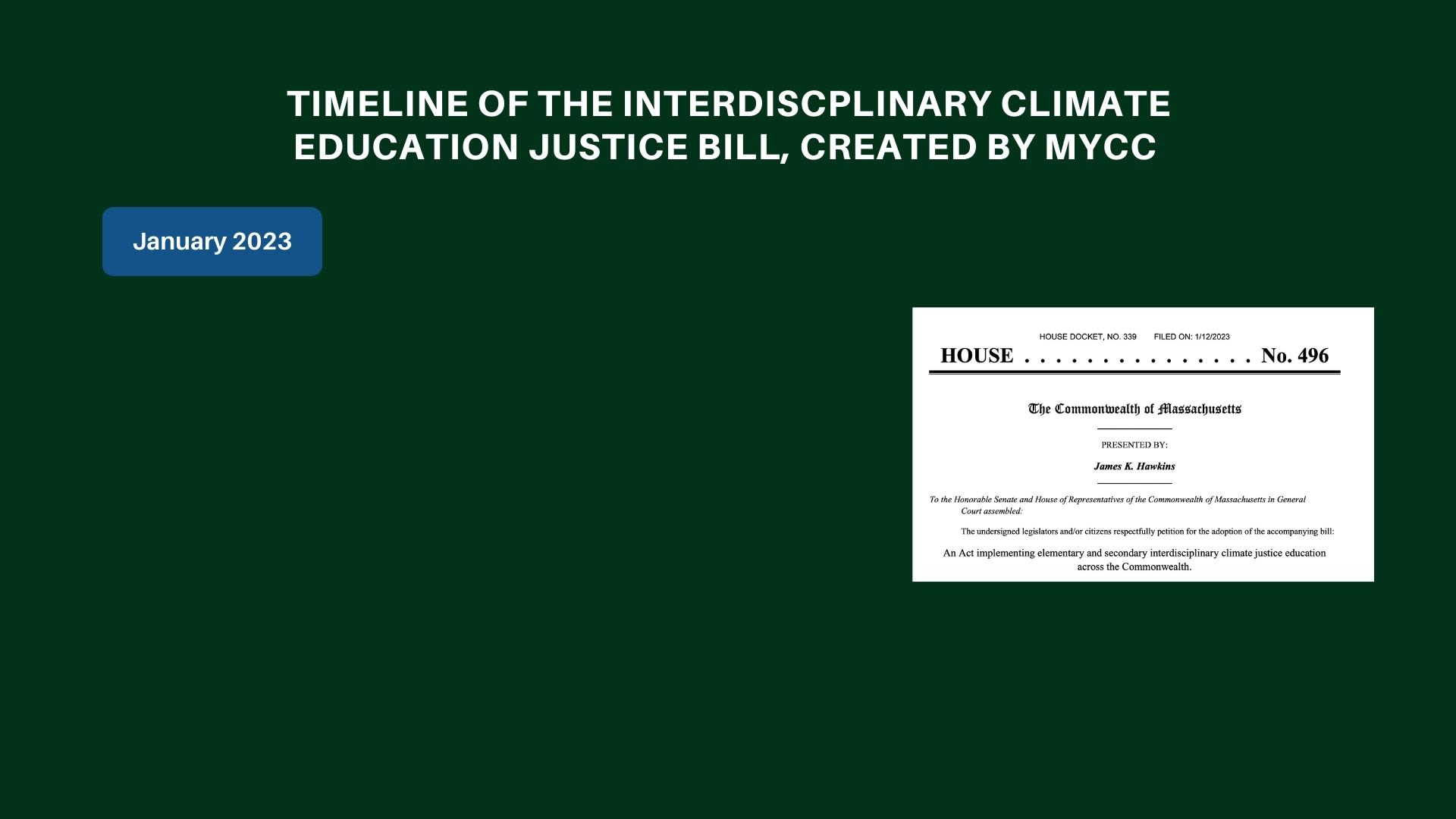
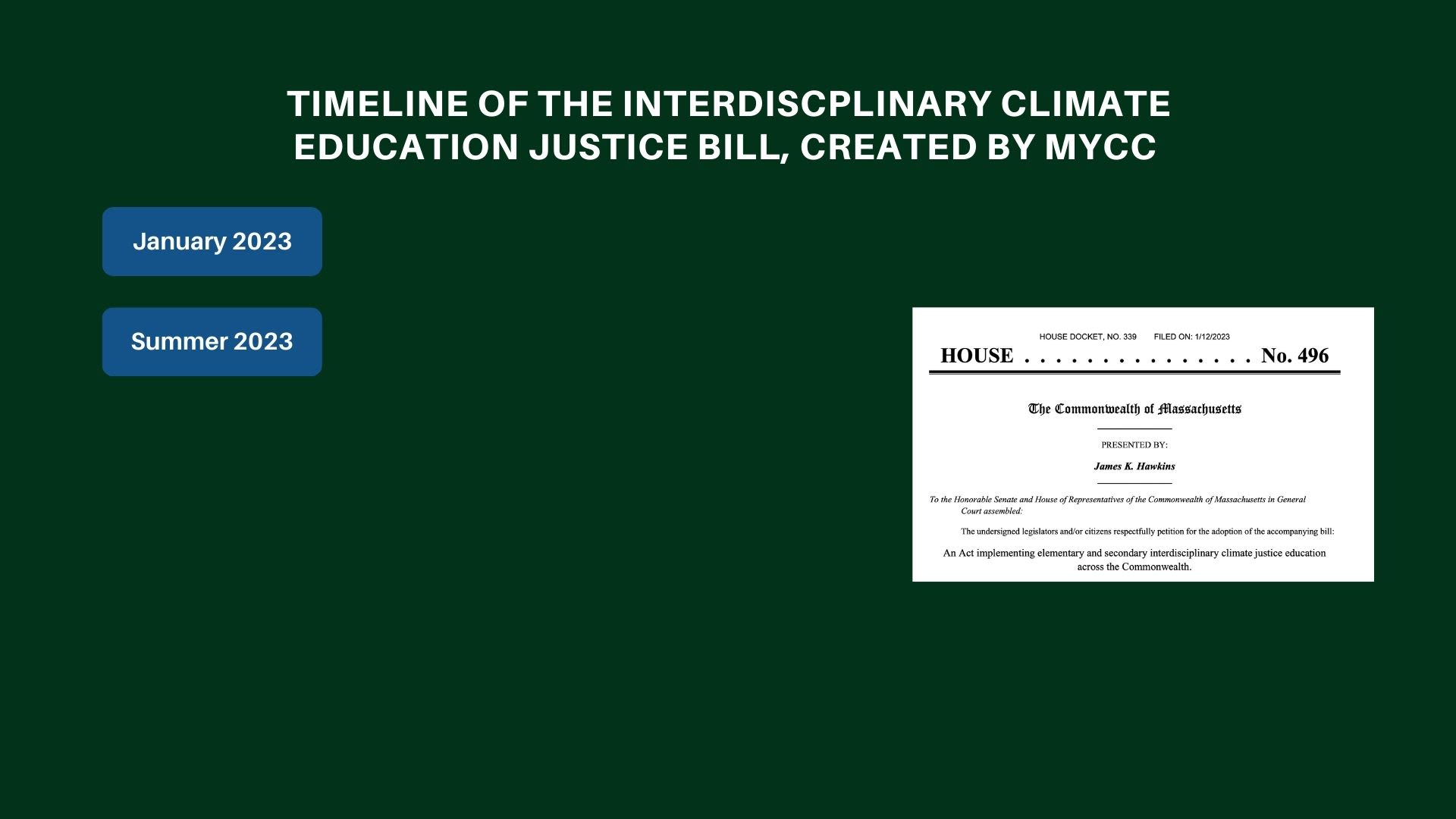
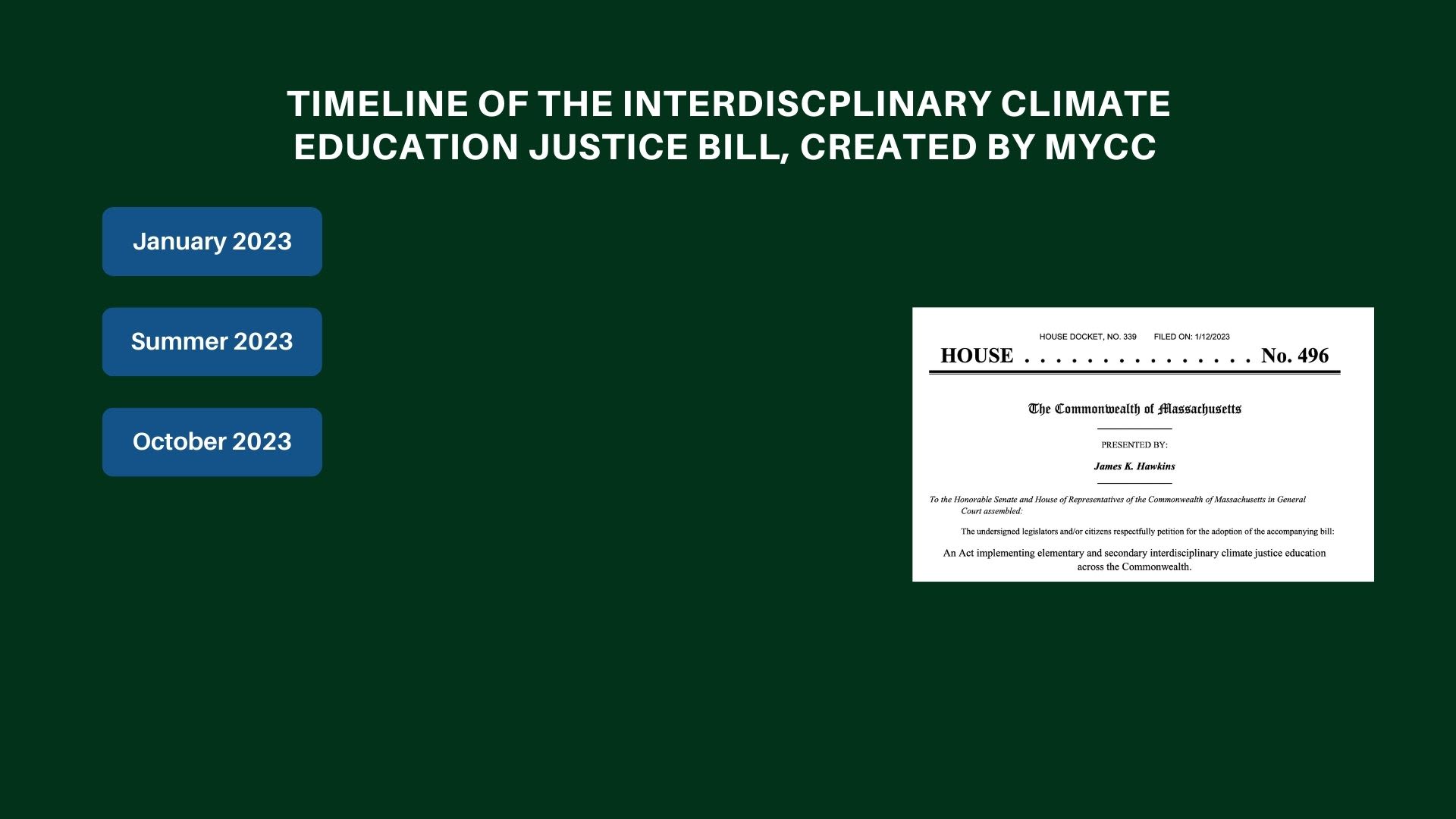
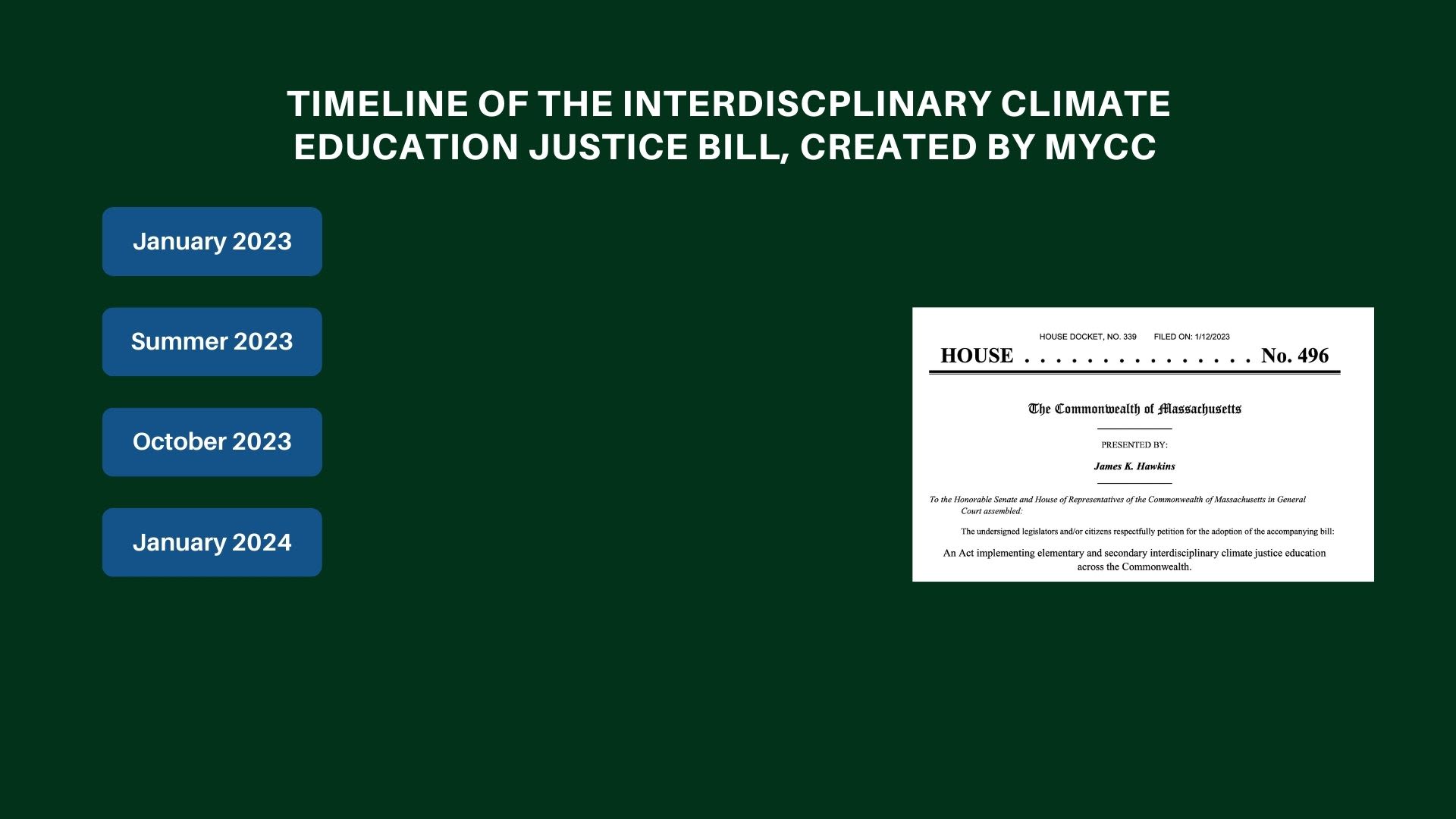
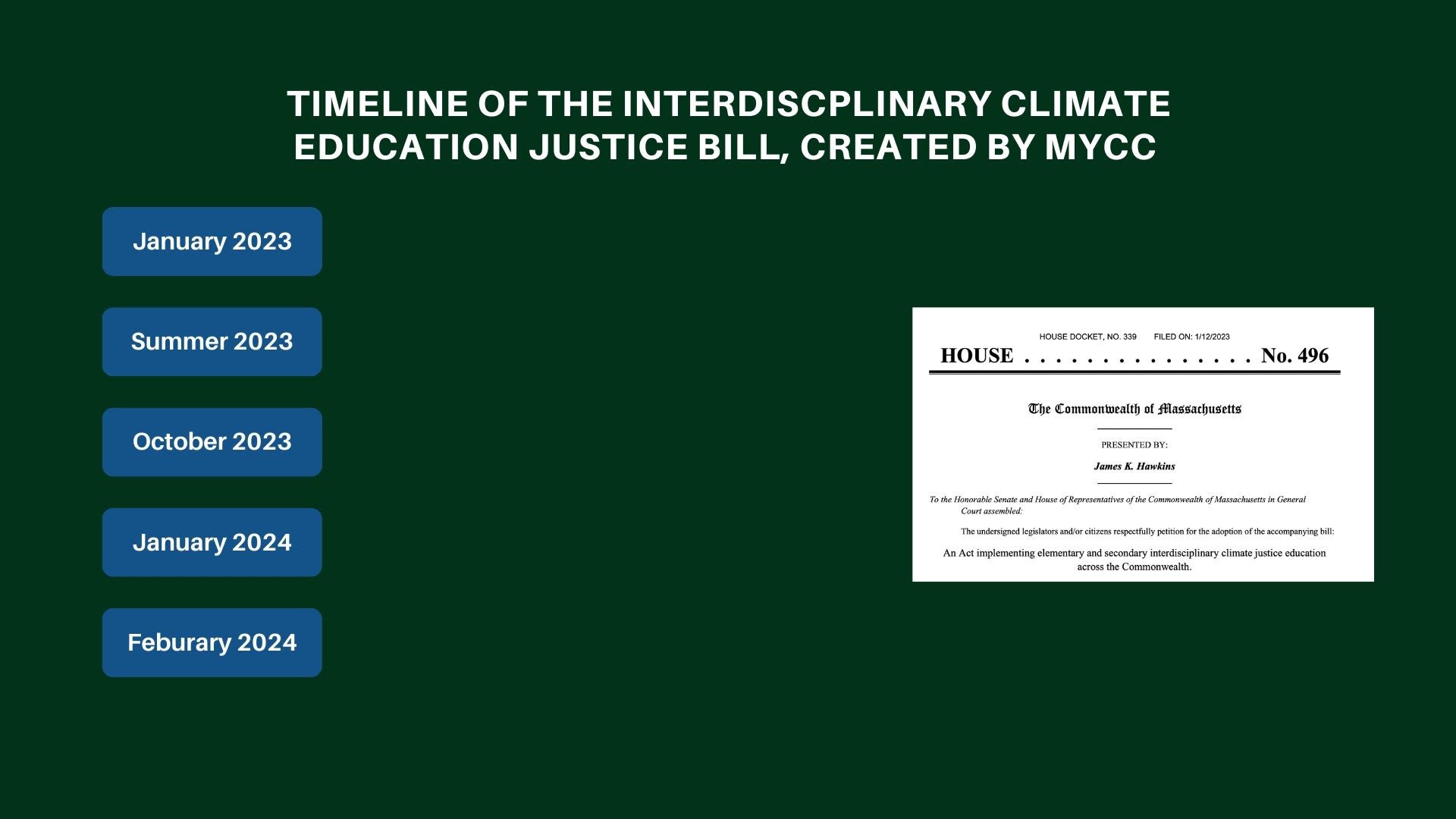
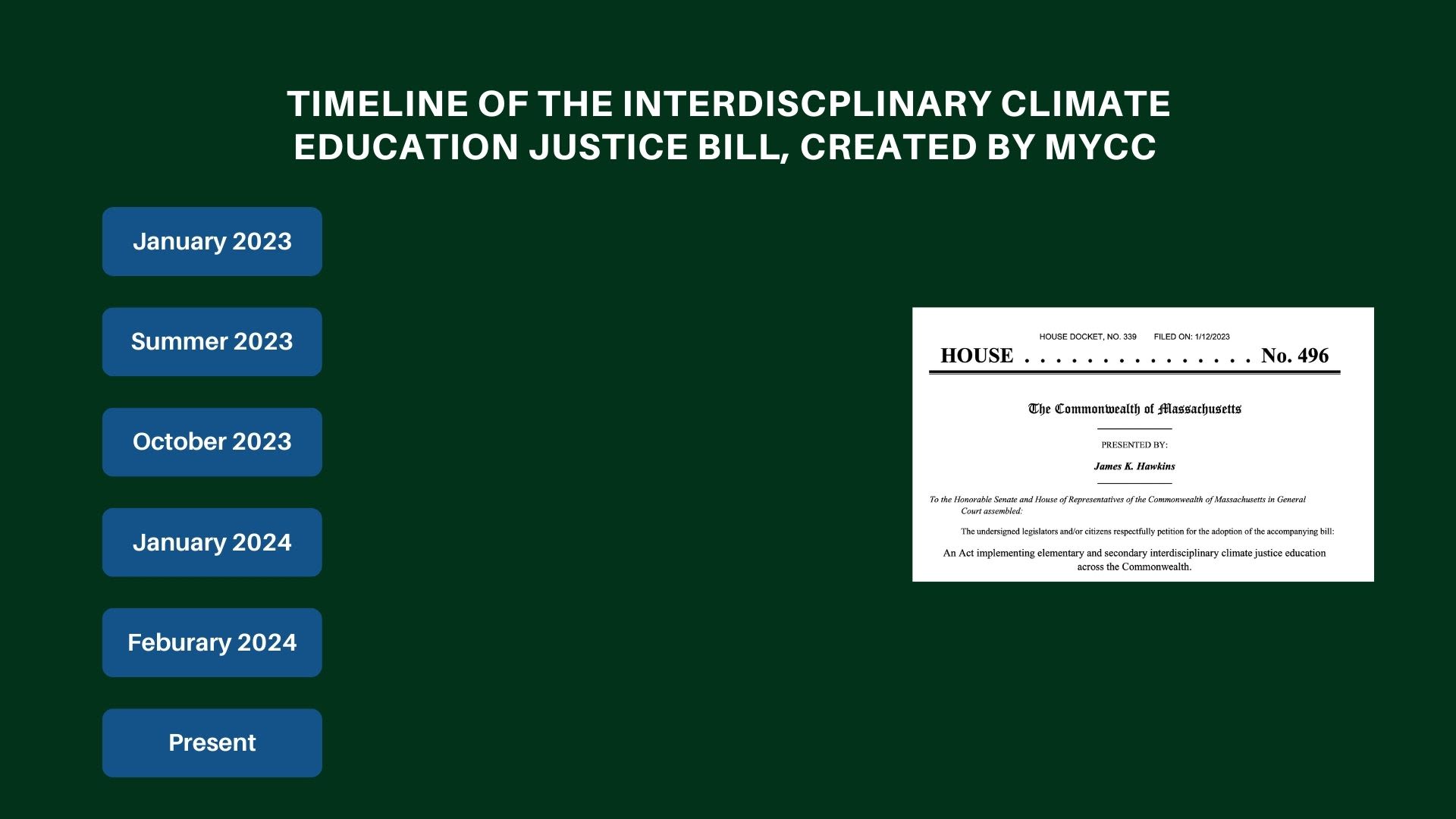
Docketing the bill
After the previous education bill died in Ways and Means, State Representative James Hawkins filed the new climate education and justice bill in the State House, eventually ending up in the Education Committee.
Lobbying and Meeting with Legislators
Once the bill was docketed, MYCC members met with legislators from their own districts along with organizations such as Mass Audubon, the Massachusetts Teachers Association, and Climate Action Network to revise the language in the bill.
Testifying for the Bill
In the fall, the State House called on MYCC members to testify in front of the State House. There were opportunities to testify both in-person and virtually over Zoom. Members could also write in a testimony for the Education Committee to view.
Lobby Week Pushes Legislators
In late January, MYCC members rallied both in Beacon Hill and online over Zoom. Organizational leaders made speeches and members met with their legislators to gain sponsors and support for the education bill.
Victory in the Education Committee
In mid-February, committee members needed to vote on bills. After a long campaign, the Education Committee reported the Climate Education Bill out of committee favorably. The bill now heads to its next step, Ways and Means.
Last Push toward Passage
Recently, Adult Administrator Eben Bein passed along a signed letter from several youth to the chairs of the Ways and Means Committee in hopes of seeing the bill pass. If the bill makes it out of committee, the Senate and House will vote on the bill, and if passed, will go to Governor Maura Healey.
Myself, I advocate for policy change with the hopes of mitigating damage. In September, the city of Newton unanimously passed a plastic reduction ordinance that I initiated. Policymakers relied on my strong position to advance the bill. While limiting plastic in Newton was a small step, it was a microcosm of a more extensive solution.
Across the country, Sophie Kim, a sophomore at Huntington Beach High School in California and the founder of The Clean & Green Initiative, knows that without concrete policies drafted by youth now to solve climate change, our generation will endure an uninhabitable planet.
"It's common sense that [the youth] should have some sort of say in crafting policies that are going to be passed," Kim said. "Our policies are going to shape our world for the next few decades... they are going to continue to have an impact for as long as they are in effect. And also there are issues that need to be tackled right now, where if they're not tackled right now, and if we don't have that legislation, and we don't have those actions, then the next generation is really going to suffer."
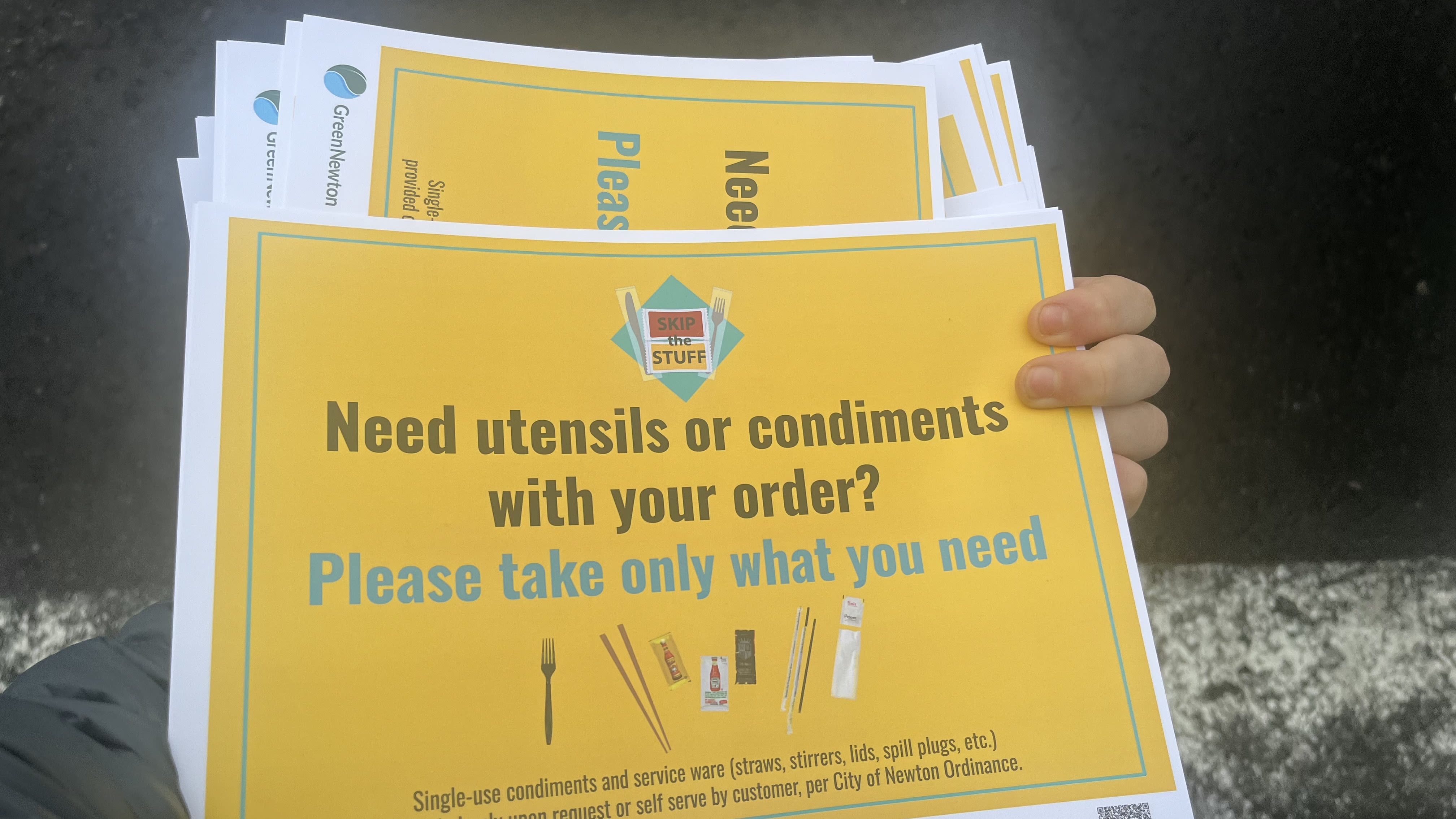
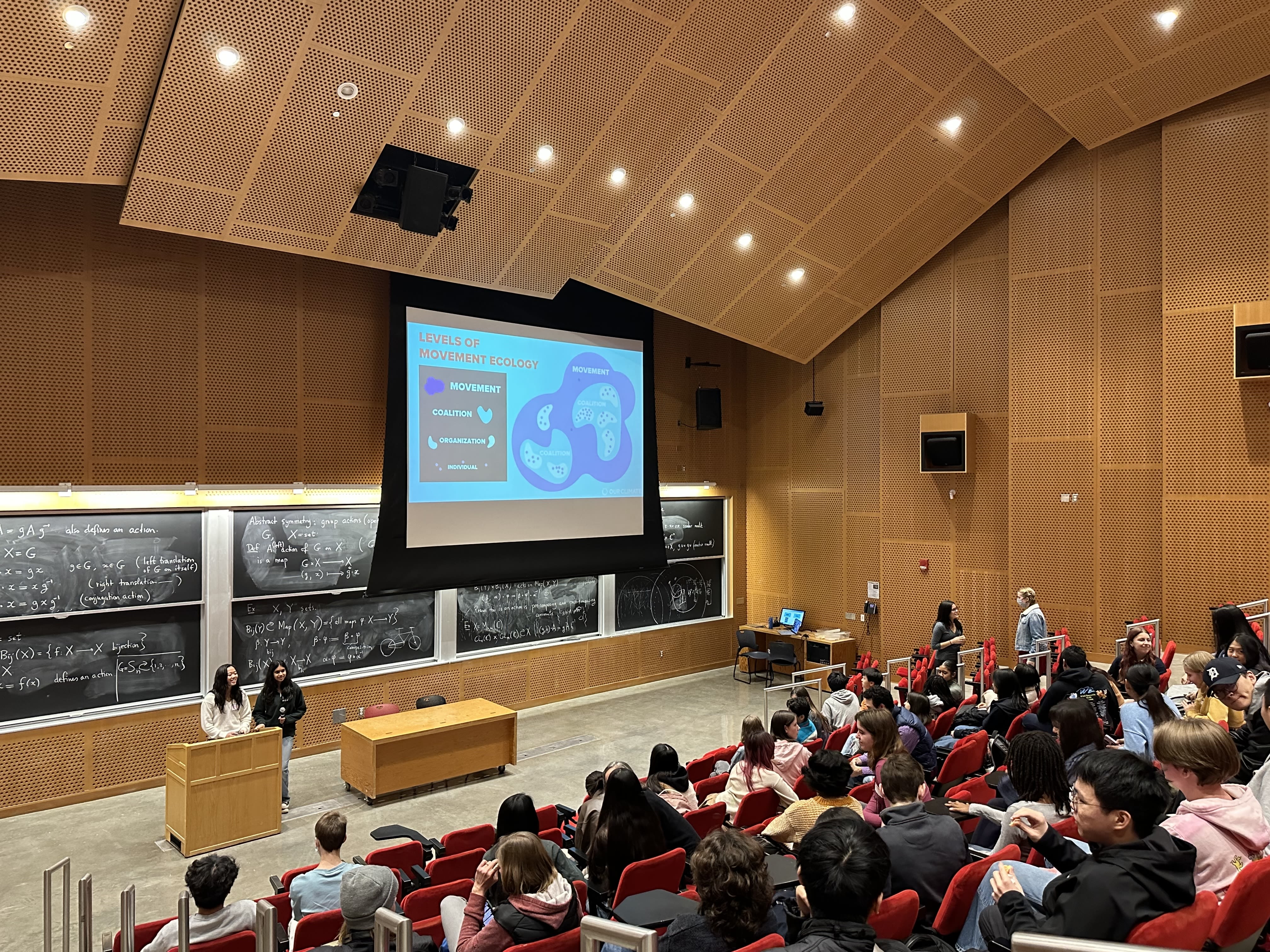
Isabell Luo, a student at Andover, and Anaya Raikar, a student at Winsor, present to the crowd at the MYCC Summit at MIT Stata Center in October. Photo courtesy of MYCC.
Isabell Luo, a student at Andover, and Anaya Raikar, a student at Winsor, present to the crowd at the MYCC Summit at MIT Stata Center in October. Photo courtesy of MYCC.
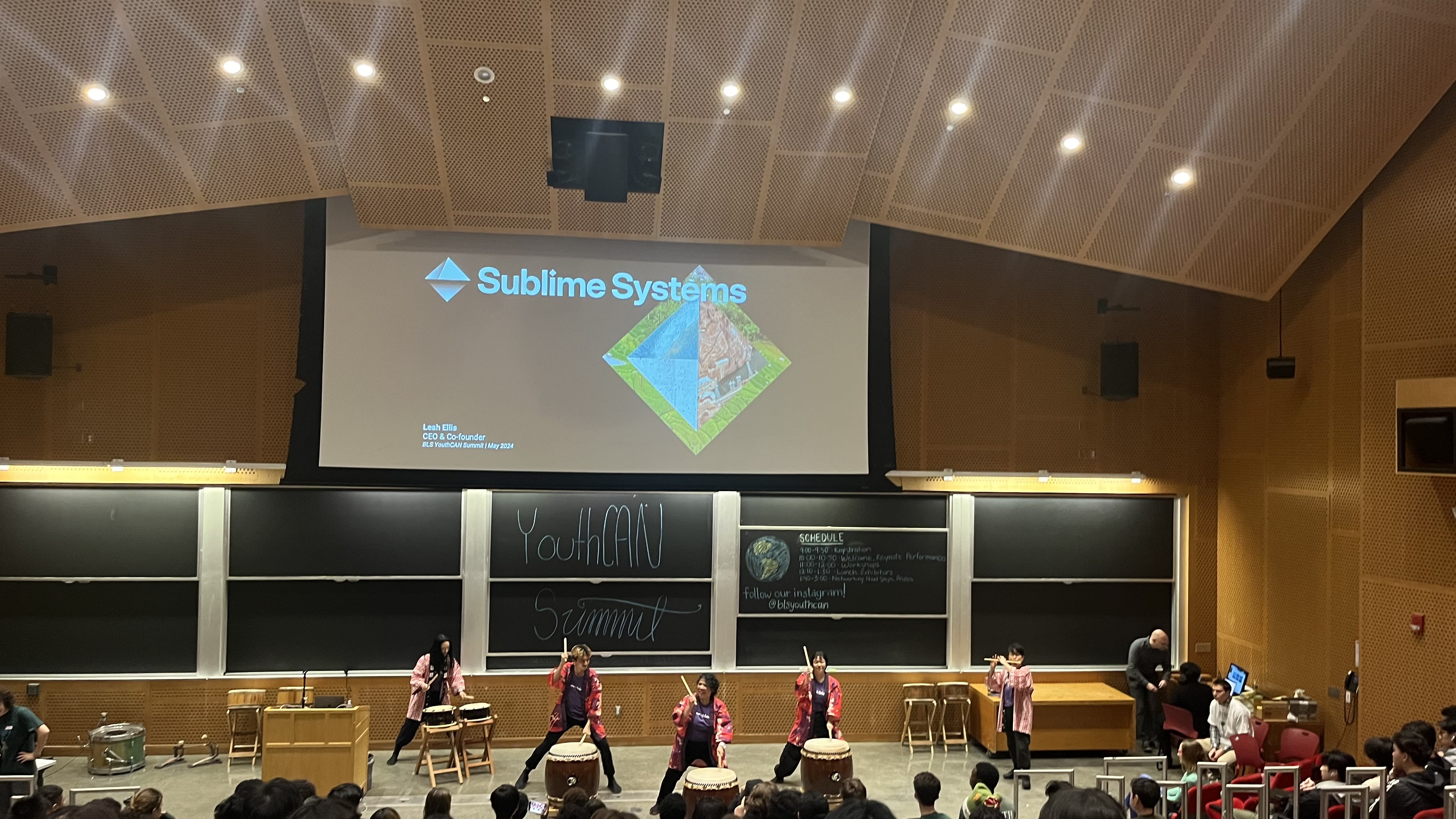
A performance during the opening plenary at BLS YouthCan Summit at MIT Stata Center. The event was hosted by students from the Boston Latin School. Photo courtesy of Evan Michaeli.
A performance during the opening plenary at BLS YouthCan Summit at MIT Stata Center. The event was hosted by students from the Boston Latin School. Photo courtesy of Evan Michaeli.
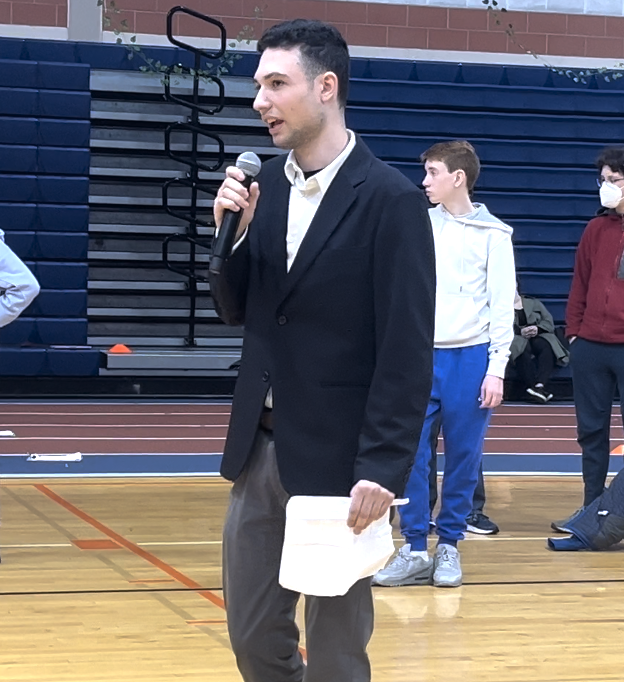
Evan Michaeli '24 gives a speech at Newton South Sustainability Squad's Earth Day Event. Photo courtesy of Evan Michaeli.
Evan Michaeli '24 gives a speech at Newton South Sustainability Squad's Earth Day Event. Photo courtesy of Evan Michaeli.
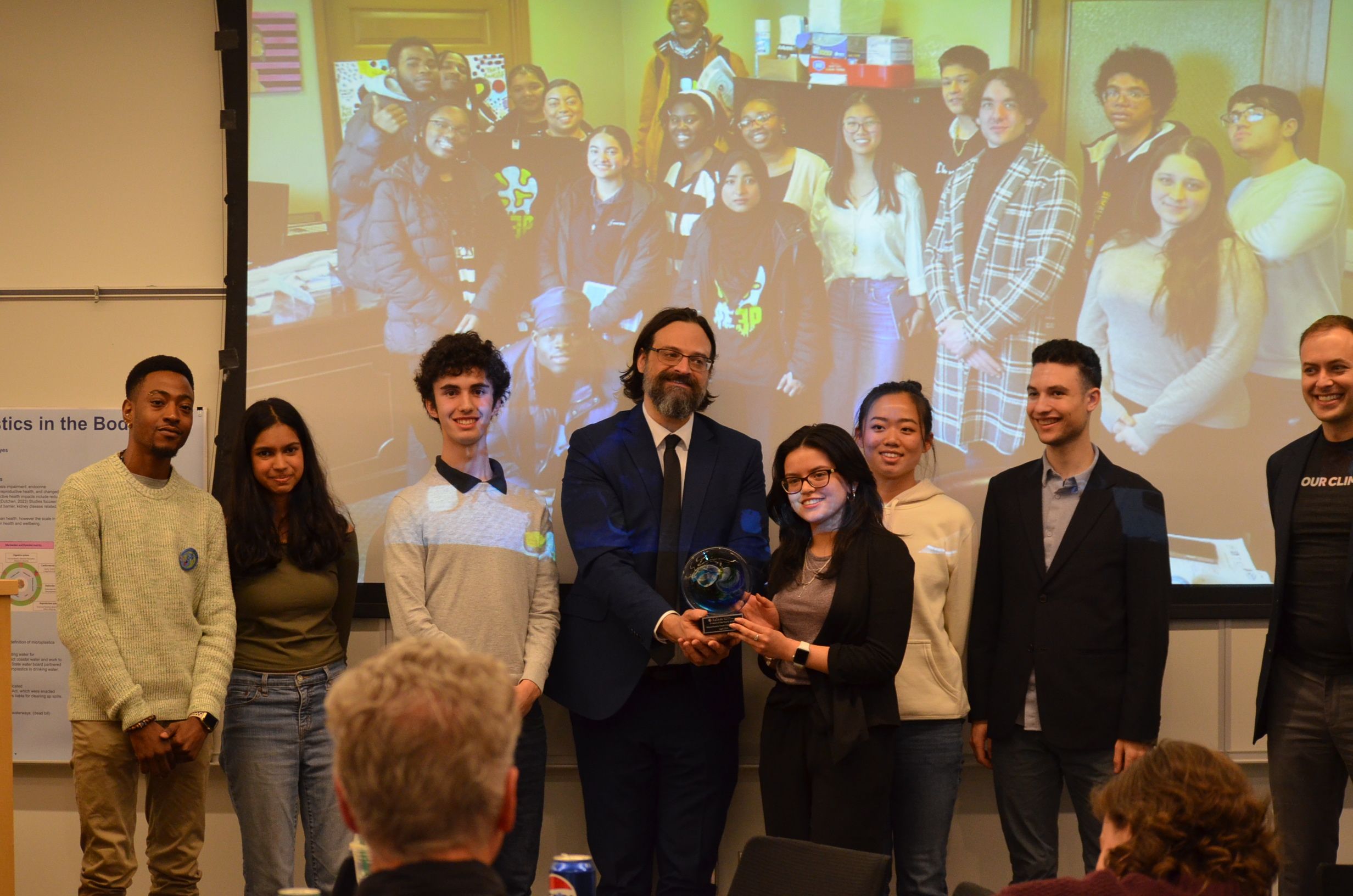
Members of MYCC receive the Friend of the Earth award at Salem State University in April. Photo courtesy of Salem State University/MYCC.
Members of MYCC receive the Friend of the Earth award at Salem State University in April. Photo courtesy of Salem State University/MYCC.
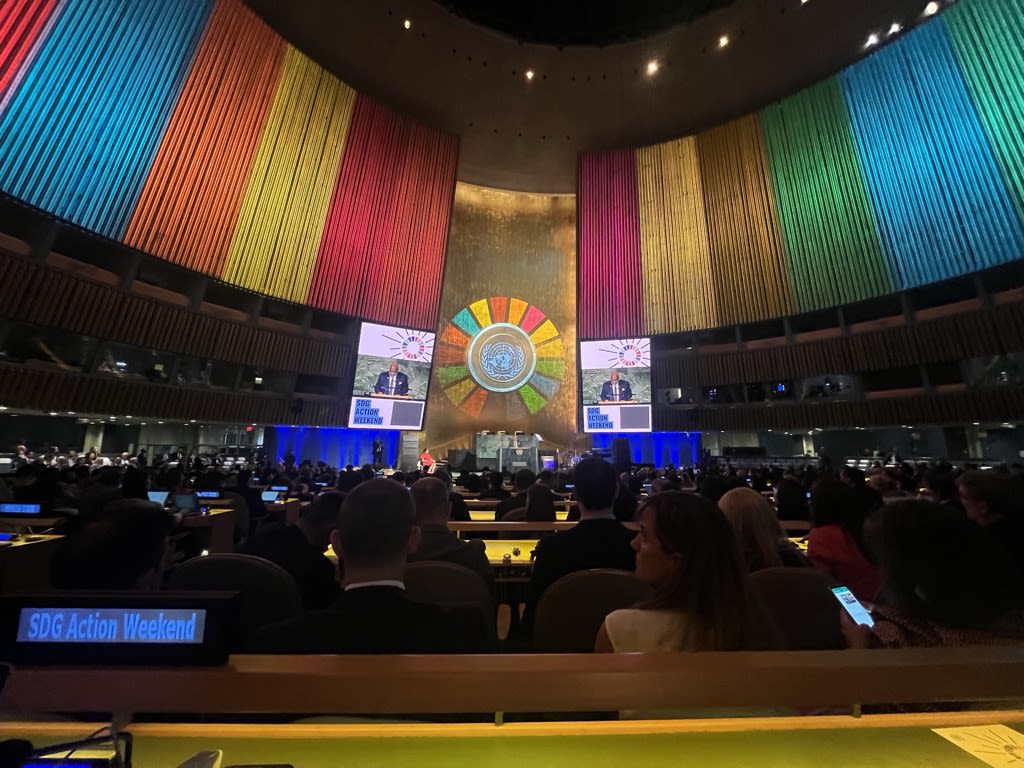
President of the 78th General Assembly Dennis Francis speaks to the crowd at the SDG Action Weekend ahead of the SDG Summit. Photo courtesy of Evan Michaeli.
President of the 78th General Assembly Dennis Francis speaks to the crowd at the SDG Action Weekend ahead of the SDG Summit. Photo courtesy of Evan Michaeli.
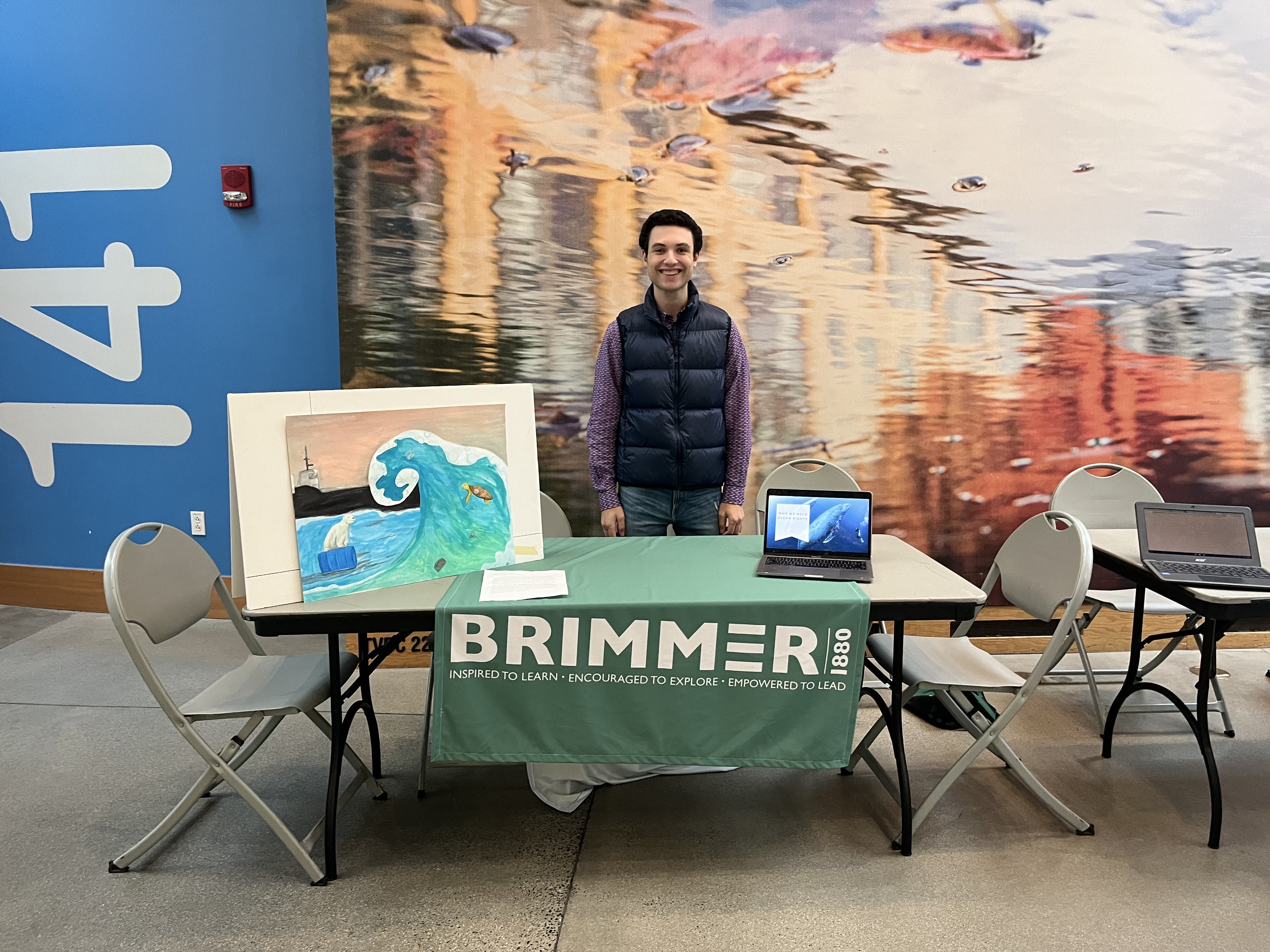
Evan Michaeli '24 tabling at the MYCC Summit in October on behalf of the Brimmer and May Environmental Club. Michaeli discussed the importance of ocean rights. Photo courtesy of Evan Michaeli.
Evan Michaeli '24 tabling at the MYCC Summit in October on behalf of the Brimmer and May Environmental Club. Michaeli discussed the importance of ocean rights. Photo courtesy of Evan Michaeli.
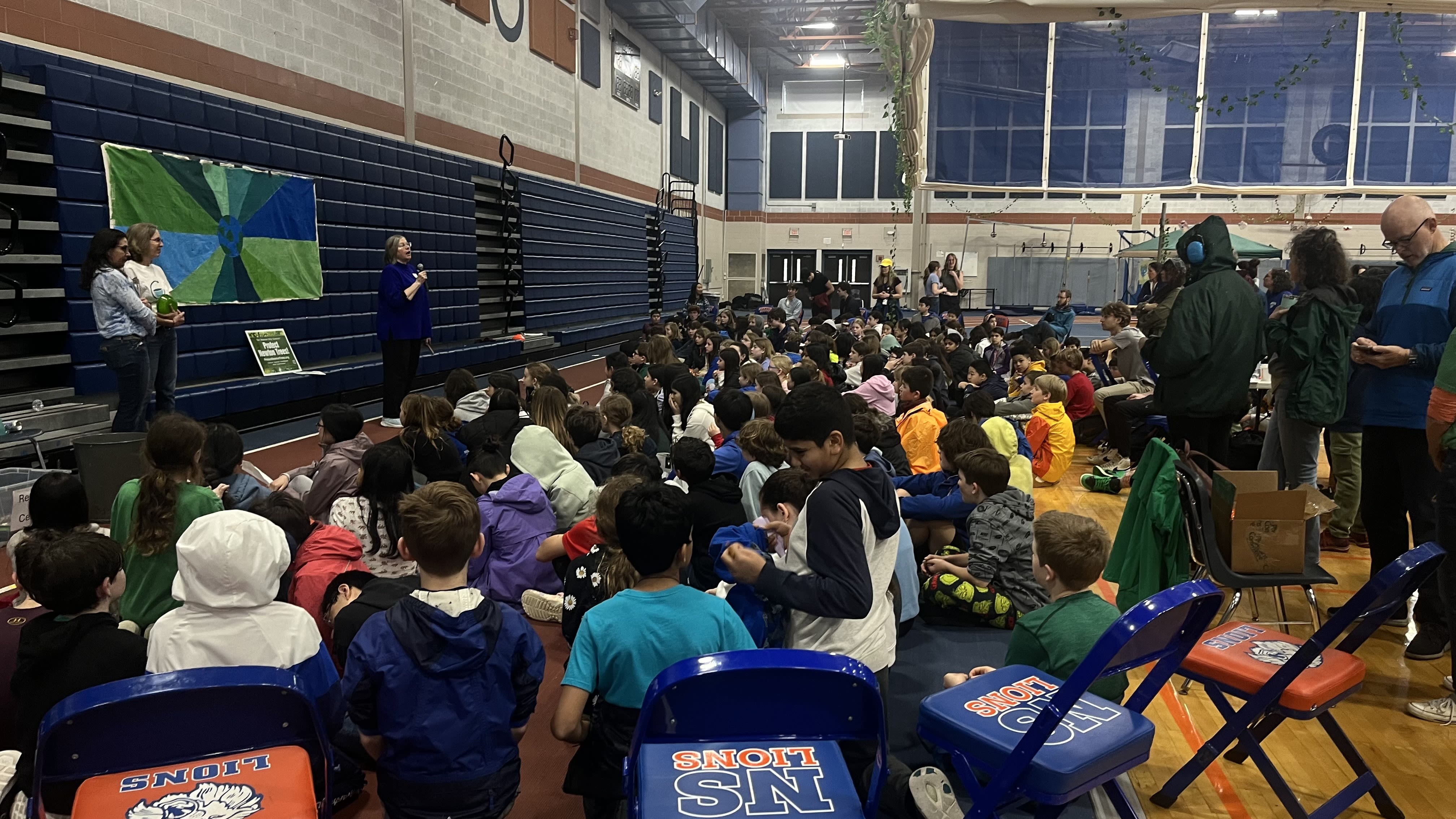
A member of Newton Protect Trees speaks to a group of middle schoolers on the topic of tree cover in cities. The Earth Day event was planned by the Newton South Sustainability Squad. led by Andrea Tang. Photo courtesy of Evan Michaeli.
A member of Newton Protect Trees speaks to a group of middle schoolers on the topic of tree cover in cities. The Earth Day event was planned by the Newton South Sustainability Squad. led by Andrea Tang. Photo courtesy of Evan Michaeli.
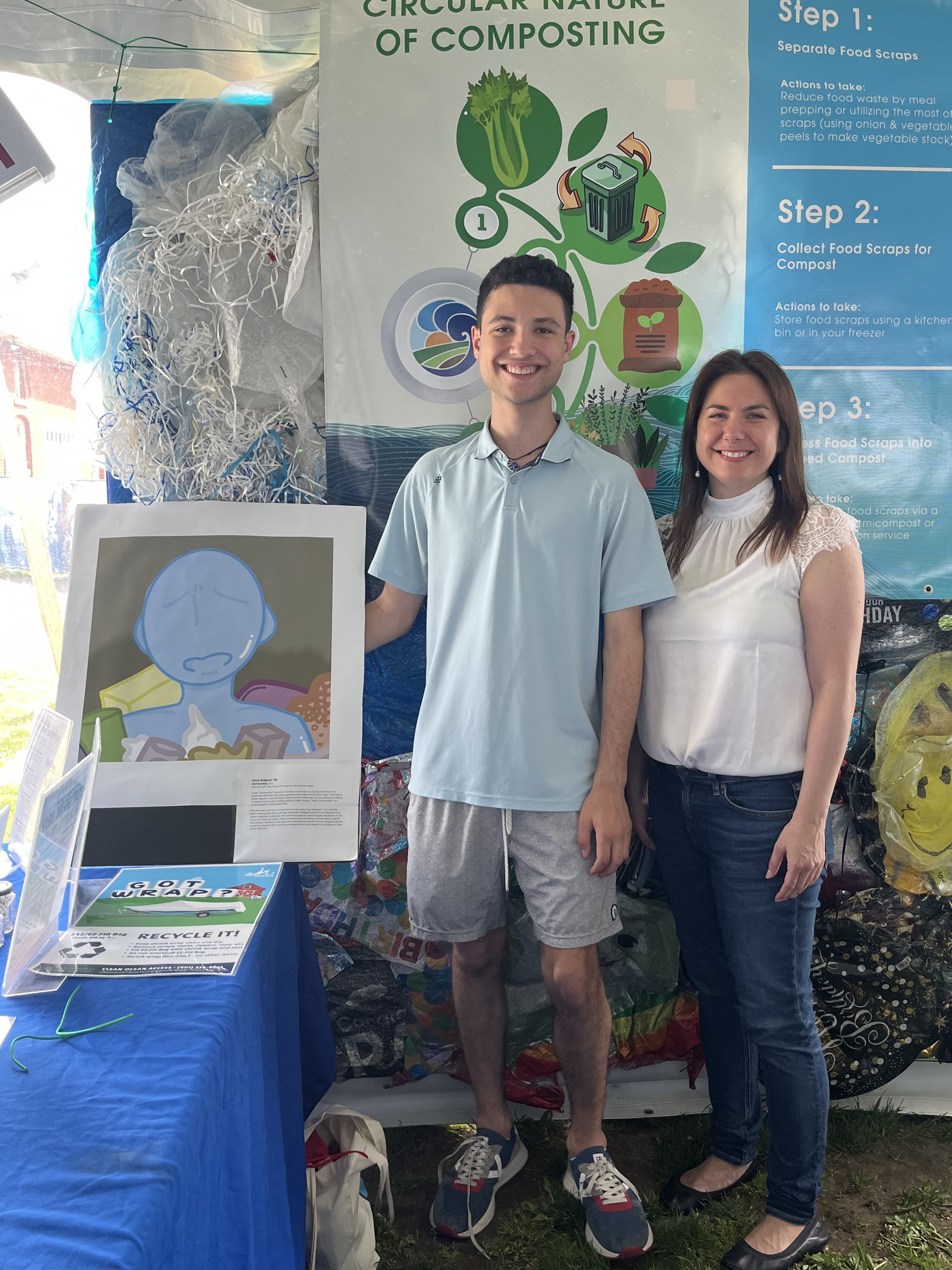
Evan Michaeli '24 and Faculty Advisor Nicole Rudolph presents a drawing by Livvy Avignon '26 in Newport, R.I. as a part of The Ocean Race. Photo courtesy of Evan Michaeli.
Evan Michaeli '24 and Faculty Advisor Nicole Rudolph presents a drawing by Livvy Avignon '26 in Newport, R.I. as a part of The Ocean Race. Photo courtesy of Evan Michaeli.
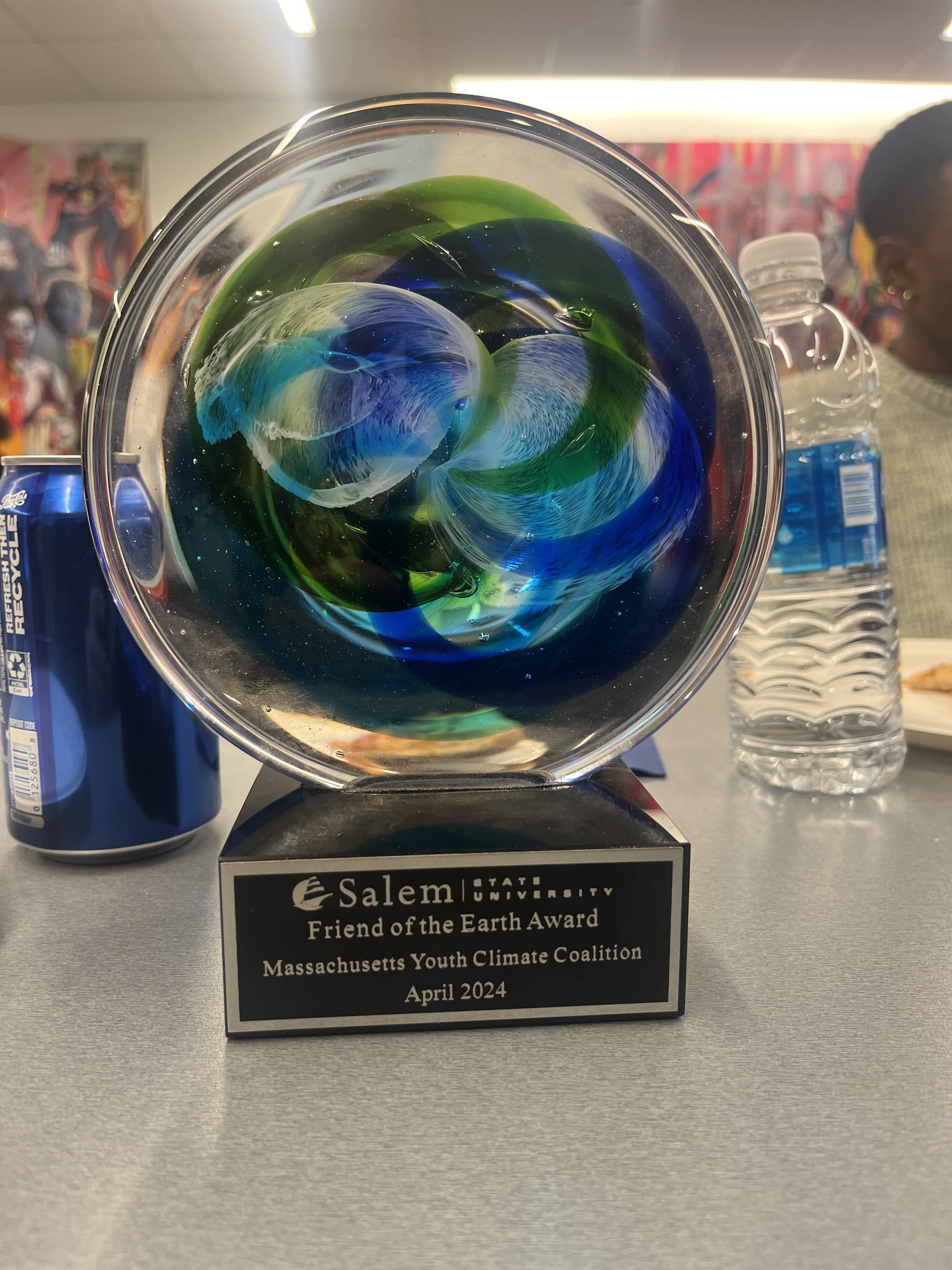
On April 11, MYCC received the Friend of the Earth Award from Salem State University. Several MYCC members attended to receive the recognition. Photo courtesy of Evan Michaeli.
On April 11, MYCC received the Friend of the Earth Award from Salem State University. Several MYCC members attended to receive the recognition. Photo courtesy of Evan Michaeli.
Challenges
Despite the efforts of MYCC and The Clean & Green Initiative in influencing legislation directly, other youth environmentalists engage in extreme versions of protests. These activists often commit vandalism and trespassing or disrupt normal activities.
Not only are these forms of activism illegal, but they elicit rage and despair. Violent and disruptive protests may lure attention, but the reaction is rarely favorable.
Extremism clashes with reality, hindering progress and support. Instead, compromise and diplomacy are a better route. Lan believes that people should be aware that activists don't just ruin paintings and barricade roads.
"I think something about activists, and I think a bad rep that we get is that we're the people that pour tomato sauce on the 'Mona Lisa'," Lan said. "I just want to be someone that's like working closely with the decision-makers to have them better represent our interests and not really be super radical and divisive on an issue that we need all hands on deck for. "
I just want to be someone that's like working closely with the decision-makers to have them better represent our interests and not really be super radical and divisive on an issue that we need all hands on deck for
We cannot allow a few extremists to derail our mission of creating a livable future. Instability and vandalism only deepen a divide among the population and deter politicians from action. As a result, climate laws lag behind in committee, often dying before reaching Congress.
Screams do not work. Political discourse does. More activists should take a page from MYCC and The Clean & Green Initiative and pursue their legislators on climate action. Instead of falling on deaf ears, lawmakers will be willing to hear proposals and deliver feedback.
Tokenization
Even when legislators are cooperative, young activists face tokenization. Several politicians use youth for their own political gain to show that they care about the next generation.
Legislators love to post on social media when they talk with the youth, yet never give them credit for any work or thoughts.
Tokenization is even present in the United Nations. After attending an event focused on generating youth support for the SDGs, I was shocked to find a disparity in treatment between youth and adults.
I could not enter the UN without my mom, and I must have been one of the only attendees under 18 at the SDG Action Weekend event. Furthermore, placards often showed country names for delegates or organization names for directors, yet the placard for the youth on a panel showed 'Young Person.'
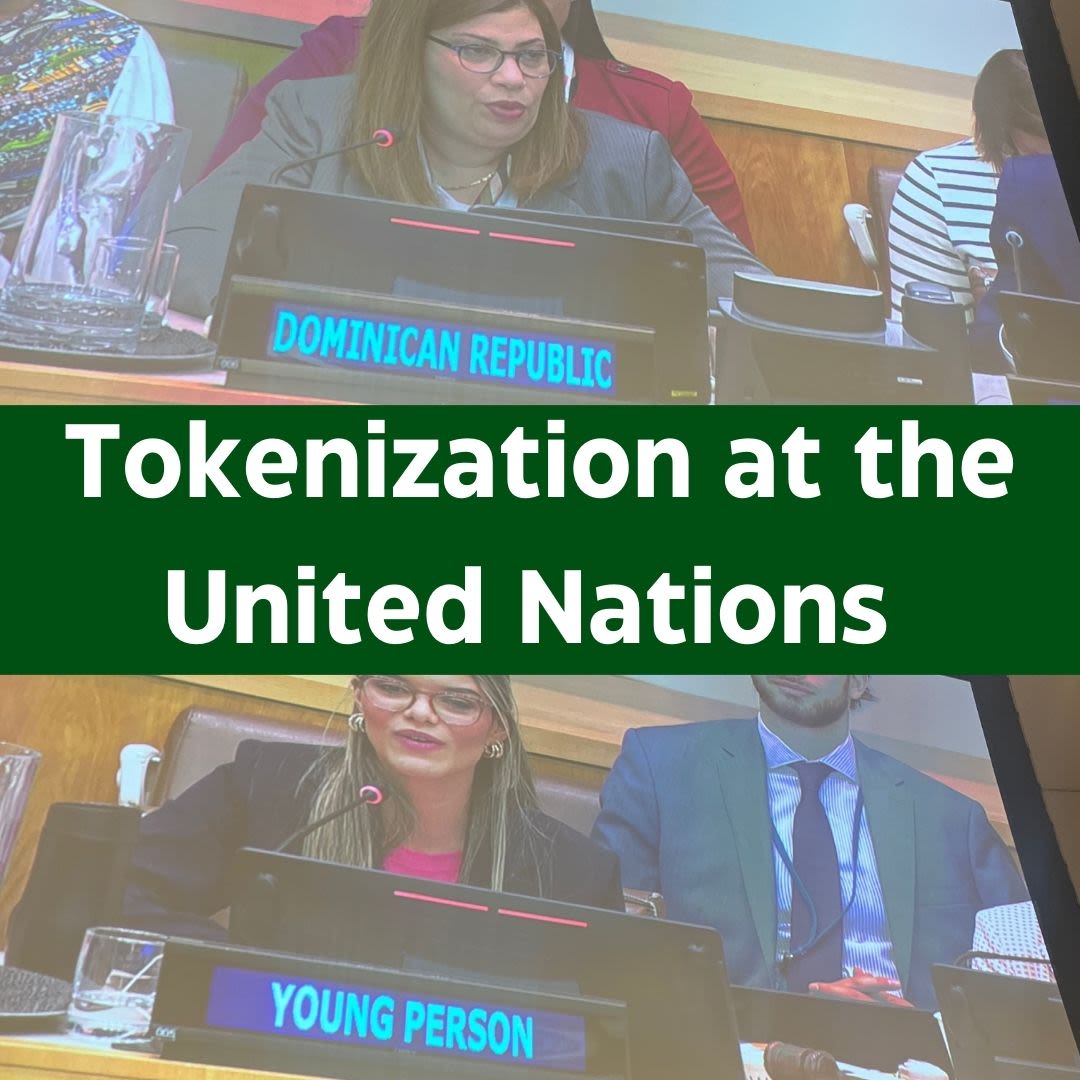
A design shows the disparity between the two placards at the United Nations during the SDG Action Weekend. This shows tokenization at the UN, using youth instead of inviting them to create policy. Design created on Canva, photo courtesy of Evan Michaeli.
A design shows the disparity between the two placards at the United Nations during the SDG Action Weekend. This shows tokenization at the UN, using youth instead of inviting them to create policy. Design created on Canva, photo courtesy of Evan Michaeli.
Kim feels similarly.
"As someone who is under 18, for me, I've seen a lot of programs, especially for the UN, but also for other organizations, that are supposed to be youth-centric, and they're supposed to be doing all these things to help amplify youth voices," Kim said. "A lot of times you'll see like "this program is a fellowship program for young people," but the minimum age requirement to apply is 18."
What is most frustrating is that I know the demand is there. While I attended the SDG Action Weekend, thousands of students descended upon the United Nations, calling on President Joe Biden to end fossil fuel leases. It felt wrong to be inside without allowing others to have the same opportunity.
If the UN and other bodies of government truly care about the youth voice, they would invite youth leaders into the process. Instead, nations and international organizations outcast and block opportunities for adolescents. These institutions must fundamentally change how they approach the next generations if they are serious about their involvement.
A photo-op is not enough; we want a seat at the table.
Luckily, there are plenty of ways for students to join the fight against climate change.
For one, they can join local organizations like MYCC or a larger NGO like Captain Planet Foundation. Each of these organizations is youth-led and supported by adults. This way, students have the chance to lead while gaining valuable mentoring.
Furthermore, youth should contact their legislators and inquire about the current bills in both the state legislature and Congress about climate change. This way, you can tell the lawmaker's office that you care about the health of our planet.
Also, everyone can take small steps to improve their carbon footprint. Stay mindful of your clothing and waste, reuse more often rather than throwing out single-use items, and learn to compost. Each of these may have a minuscule impact, but it all adds up.
But most importantly, youth over 18 years old have the best opportunity to make their voices heard. In November, the general election will put our future to the test. It is critical that the youth vote as it is the first pillar of our democracy and shows responsibility.
As youth, we cannot stand on the sidelines any longer. It is time for a youth revolution in politics, one where we will be accurately and appropriately represented and heard.
Editor's Note: If you are over 16 and not registered to vote, you can register to vote in Massachusetts using this link.
Also, Evan Michaeli '24 wrote this piece in partnership with Andrea Tang, a senior at Newton South High School.
Andrea Tang: I am a senior at Newton South High School who loves anything and everything nature! As part of the Massachusetts Youth Climate Coalition and Newton South Sustainability Squad, I have loved getting to meet new people at events and recently helped organize the inaugural Earth Day celebration hosted at my school for youth in my community!
It is critical that the youth vote as it is the first pillar of our democracy and shows responsibility.

